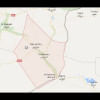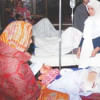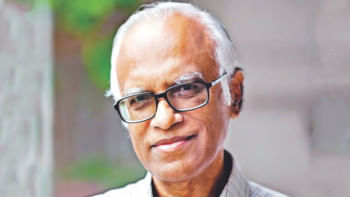JMB regroups without watch
Ahmadiyya Muslim community leaders in Rajshahi are of the opinion that those who are hostile to their ideology orchestrated Friday's suicide bomb attack on their mosque in Bagmara upazila.
Locals, however, blamed law enforcers for being indifferent to militant activities in the trouble-prone upazila.
"We're always being persecuted in different districts, including Rajshahi and Natore, over the years by religious fanatics for having a certain ideology," said M Salauddin, muballig (religious preacher) of Rajshahi district unit of Ahmadiyya Muslim Jamaat.
He said Ahmadiyya people in the area were being harassed by Sunni Muslims, Khatme Nabuwat, Ahle Hadith Andolon Bangladesh, and Jamaat-e-Islami men. But they were never attacked by any militant outfit before.
"Whoever is involved [in Friday's attack], it is part of a bigger plan and we don't think any local is involved," Salauddin added.
Saiful Islam, president of Ahmadiyya Muslim Jamaat at Sayedpur Chakpara and Bagmara, said they had had disputes with local Ahle Hadith men, particularly with the followers of Asadullah Al Galib's Ahle Hadith Andolon Bangladesh (Ahab) and Jamaat-e-Islami over ideologies.
"But those disputes were never so hostile to trigger a suicide bomb attack," he said.
Friday's attack on the Ahmadiyya mosque that claimed the life of the suicide bomber and injured three Ahmadiyya Muslims sparked fresh panic in the upazila.
In Baghmara, executed militant kingpin Siddikul Islam Bangla Bhai emerged in April 2004 with vigilante operations of his banned outfit Jagrata Muslim Janata Bangladesh (JMJB) that later merged with another executed militant kingpin Shaekh Abdur Rahman's Jama'atul Mujahideen Bangladesh (JMB).
JMJB and JMB killed at least 22 people and maimed hundred others in their four-month-long activity in Bagmara of Rajshahi, Atrai of Naogaon, and Naldanga of Natore until June of 2004, according to The Daily Star reports.
Mohammad Manik, a victim of torture by JMJB men, said, "We informed the police many times that the local militants were holding secret meetings at local mosques. They were regrouping and outsiders were joining them, but the police never paid heed."
"Rather, they [police] sometimes asked us why we're so interested in the militants," alleged Manik, who is also the organising secretary of Jhikra union unit of Awami League.
Wishing anonymity, another torture victim said, "We saw hundreds of firearms at the hands of JMJB and JMB militants who enjoyed the support of the state during the BNP-Jamaat rule. Where did the weapons go? We saw those men roaming openly around the villages."
Widow of a victim killed by JMJB men at Sarkutia said JMB militants threatened them that if the BNP-Jamaat comes to power again, they would have to face dire consequences.
This correspondent managed to talk to a former JMB operative whose relatives were in high positions in the outfit. He claimed that the JMB had become more powerful than ever as some other religious fanatics have joined them.
He also claimed that the JMB had a team of experts in information technology.
Talking to The Daily Star, Rajshahi Additional Deputy Inspector General Abdullah Al Mahmud, who served as the district's superintendent of police in post-JMB period, said he would look into whether there was any police negligence.
He said the police now gathered accounts of all minority groups in northern districts. "We developed regular contacts with the group leaders and continuously alerting them about attacks," he said.
"But it is difficult to ensure door-to-door security," he said, adding that the police had asked the minority groups to develop a security network of their own and call the police whenever necessary.

 For all latest news, follow The Daily Star's Google News channel.
For all latest news, follow The Daily Star's Google News channel. 








Comments